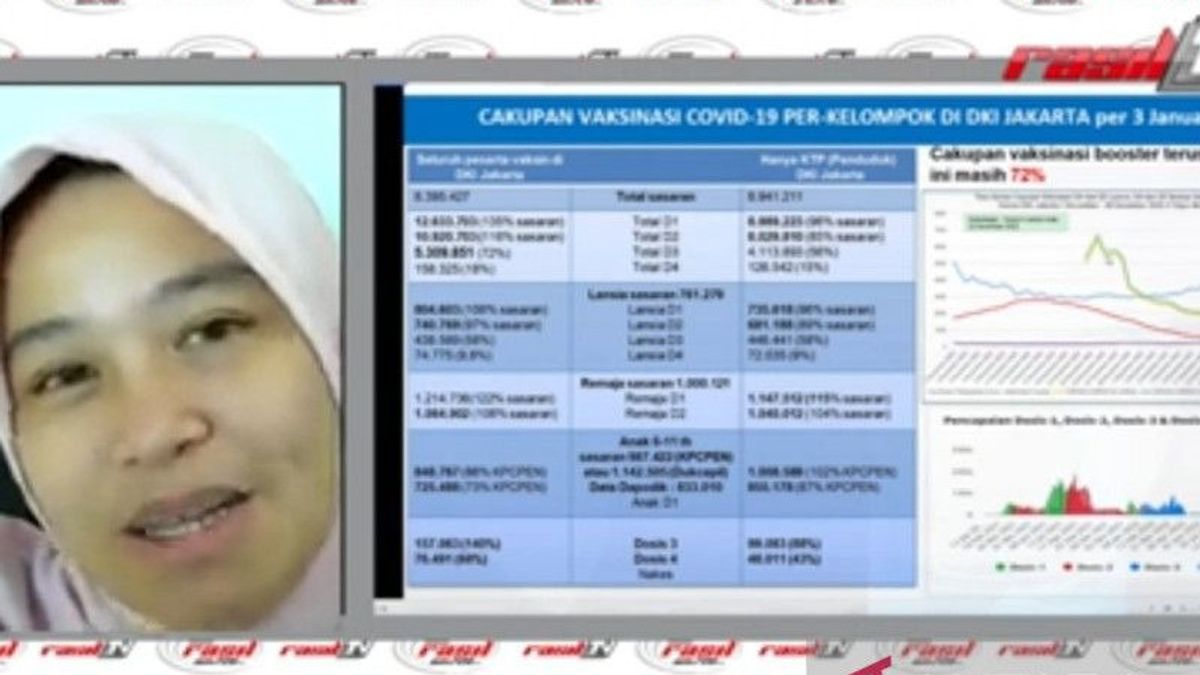JAKARTA - The DKI Jakarta Health Office (Dinkes) stated that the incubation period for the Marburg Virus when infecting someone from exposure to symptoms could reach two to 21 days.
“Virus Marburg is dengue fever caused by a virus that is in the same family as the Ebola virus. This disease has a very high death rate of 90 percent,” said Head of Surveillance and Immunization of the DKI Jakarta Health Office Ngabila Salama in Jakarta, Antara, Tuesday, February 21.
The virus comes from a Rousettus aegyptiacus fruit bat which is thought to host a natural reservoir of the Marburg virus. The potential for animal transmission to its human can occur through saliva, saliva and urine contact from the animal has been infected.
Symptoms can appear suddenly in the form of high fever, severe headache, weakness, fatigue, sluggishness, and muscle aches. On the third day, a person can experience severe runny diarrhea, stomach pain, cramps, nausea, blood vomiting, diarrhea can last for a week.
“In addition, in this phase one can be seen to have a concave eye. At 2-7 days after the onset of symptoms, a nonealing rash can arise, ” he said.
Then severe symptoms in the form of bleeding can occur on the fifth to seventh days in the nose, gums, and vagina and can come out through vomiting and feces. During the severe disease phase, patients have high fever, and disorders in the central nervous system so they can experience confusion and become angry easily.
Orchiths have been reported sometimes in the final phase of disease (15 days). In fatal cases, most frequent deaths occur on the 8th day after symptoms, usually preceded by heavy blood loss.
“ In some cases, the Marburg virus can survive in the human body after recovering from the Marburg virus disease, especially in the testes and in the eyes. In women who are pregnant, the Marburg virus can survive in the placenta, amniotic liquid, and fetus. While in women who are breastfeeding, the Marburg virus can survive in breast milk (ASI),” he said.
So far, no cases of Marburg disease have been found in Indonesia. However, since 1967 until today, 593 cases have been confirmed worldwide.
Meanwhile, at this time, the Marburg virus outbreak is occurring in the country of Equatorial Guinea since February 7, 2023. As of February 13, 2023, one confirmed case, 16 suspected cases, and nine deaths have been reported.
He said that the Marburg Virus could actually be tested through an antibody-capture enzyme-linked immunosorbent asset (ELISA) blood test, antigen-capture detection test, serum neutralization, reverse-tracriptase polymerase chain reaction (RT-PCR), electron microcopy, and insulating viruses with cell culture.
However, he appealed to the public to reduce contact with Marburg virus reservoir bats. If someone has to visit the bat's habitat area, they can use gloves and other protective equipment such as masks.
It is also hoped that it will consume meat carefully, avoiding contact with people suspected or infected including body fluids and washing hands regularly. If possible, delay travel in areas where an outbreak occurs.
"However, if it is not possible pay attention to the risks and recommendations of the government of the destination country," said Ngabila Salama.
The English, Chinese, Japanese, Arabic, and French versions are automatically generated by the AI. So there may still be inaccuracies in translating, please always see Indonesian as our main language. (system supported by DigitalSiber.id)








